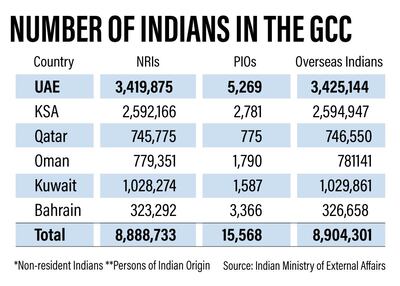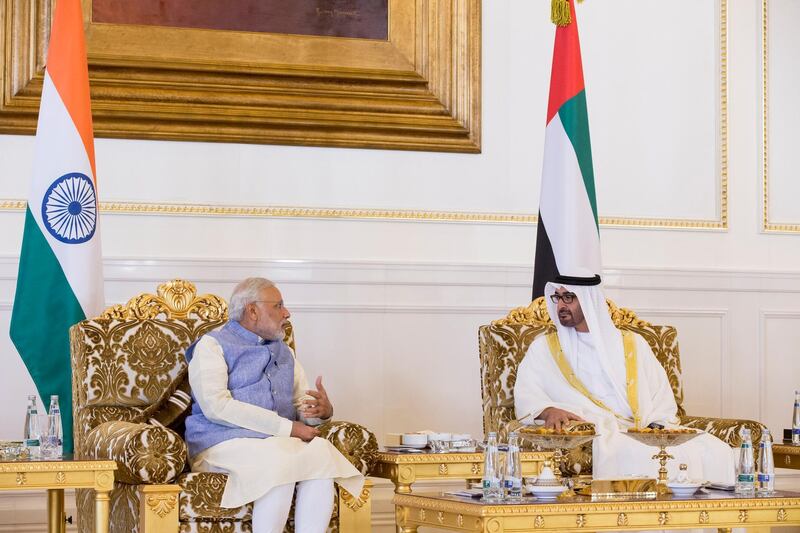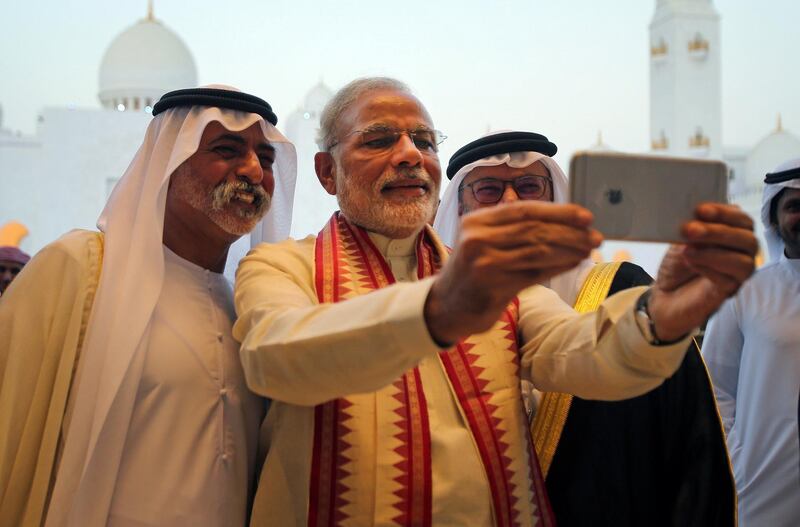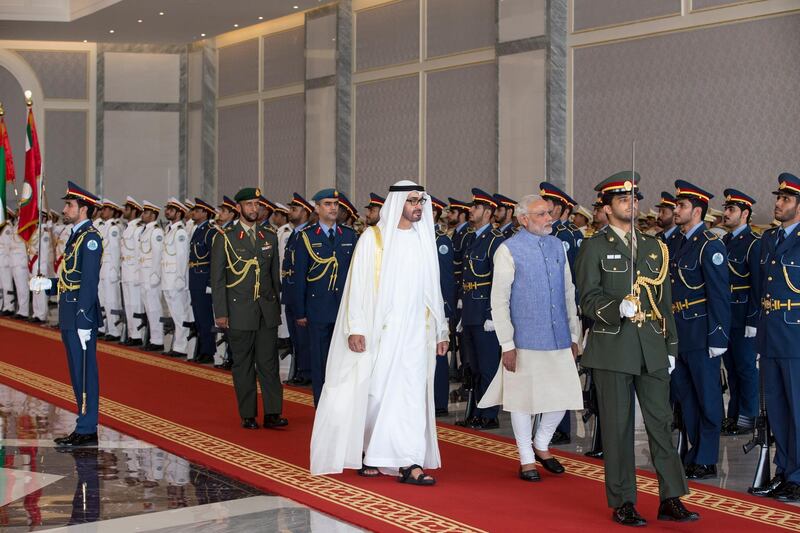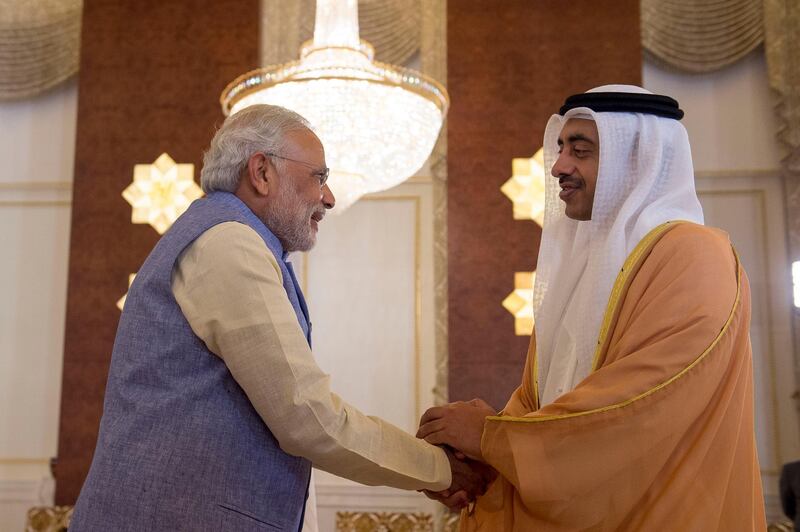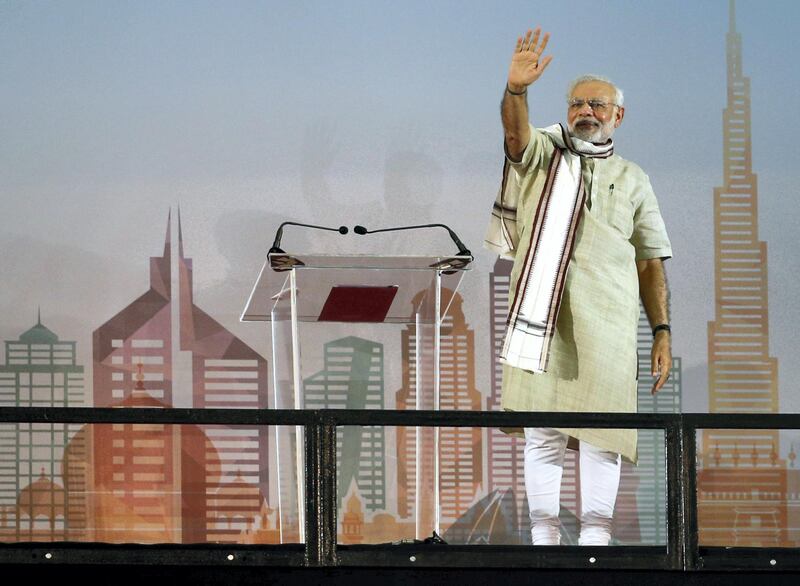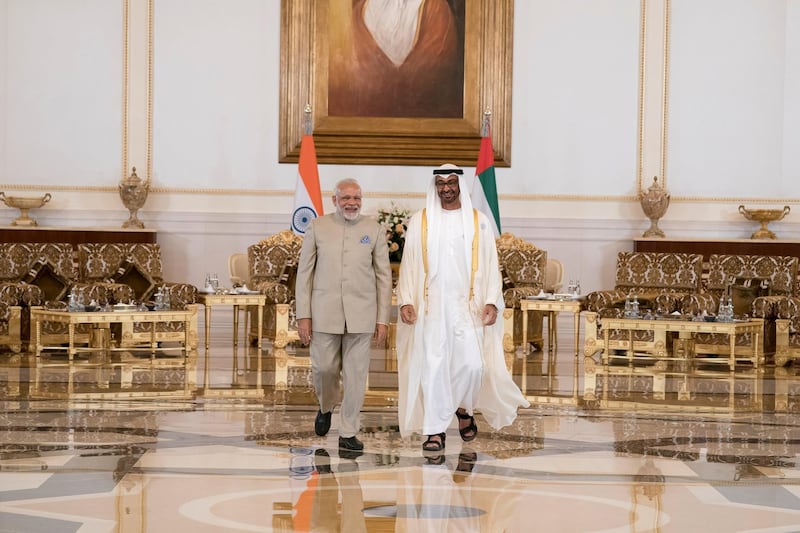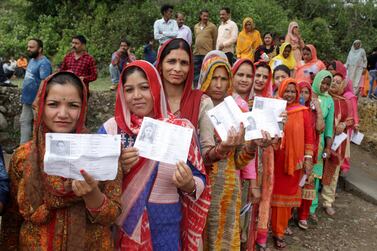A parliamentary amendment or a rule change is required before millions of Indians outside the country can vote by postal ballot.
Haris Beeran, a lawyer fighting a court case in India for overseas voting rights, said it was up to the Indian government to decide whether this would be done by changing the Representation of the People Act or by modifying the Conduct of Election Rules.
More than 13 million Indians live outside the country, of which 8.9 million reside in the six GCC countries. The only way they can vote is by travelling to their respective constituencies on election day.
Members of the armed forces, police serving outside a state and government employees posted outside India are eligible to vote by post.
"The Election Commission has said they were administratively and technically able to conduct elections but there still needs to be a law to back [non-resident] voting," Mr Beeran told The National.
“This law can be brought either by the parliament or by the central government as an amendment to the rules.
"The easiest would have been the government amending the Conduct of Election Rules of 1961 so the postal ballot system could also be extended to non-residents. The ball is now in the government's court."
Dubai businessman Dr Shamsheer Vayalil met Sunil Arora, India's chief election commissioner, last month to discuss the issue and was told the matter was "under active consideration."
The electoral body said it was in contact with the Ministry of Law and Justice and the Ministry of External Affairs to find an early solution.
Millions of non-resident Indians are keen to vote. India is headed for another round of regional elections in the states of Assam, West Bengal, Tamil Nadu, Kerala and Puducherry, starting from March 27.
At least three court cases have been filed at India's Supreme Court since 2013 petitioning for overseas voting rights.
India's lower house of parliament in 2018 passed a bill to allow non-residents to vote by proxy.
The decision could not be carried out since the bill was not passed by the upper house and both houses were dissolved before the 2019 general elections.
